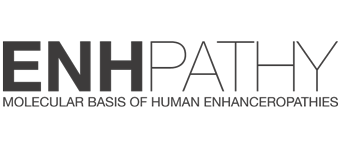Uncovering drug-adaptive epigenetic response in Acute Myeloid Leukemia (AML) (WP3)
Acute myeloid leukaemia (AML) is the most common acute leukaemia in adults, with a median age of 69 years. The vast majority of patients with AML achieve an initial complete remission after standard induction chemotherapy. However, responses are not durable, and majority of patients subsequently relapse and die of the disease. AML remains a clinical challenge and both, a better understanding of the resistance mechanism and new therapies are urgently needed.
Primary drug resistance is certainly linked to the genetic lesions driving AML but also to alterations in the epigenetic regulation of proximal promoters and distal enhancers. The primary goal of this project is to study regulatory elements that are direct targets of anticancer drugs and dissect the epigenetic mechanisms associated with drug resistance. For this, the following objectives are proposed:
- Map enhancer or promoter regions that are disturbed in AML and normal hematopoietic cells during anticancer drug exposure (namely, Daunorubicin, DIMATE and Ara-C) and identify their putative target genes.
- Characterise the role that the identified regulatory regions have in drug resistance.
- Assess the ability of the most prominent factors to sensitize or re-sensitize AML cells to cell dead.
This project will pave the way to strategies with improved therapeutic efficacies by targeting of enhancers or their targets with inhibitors that can attenuate the adaptive transcription to genes linked to drug resistance in AML. This project is also part of the EU-funded ITN programme ENHPATHY (https://www.enhpathy.eu)

![]() This project has received funding from the European Union’s Horizon 2020 research and innovation programme under the Marie Sklodowska-Curie grant agreement No 860002. The information contained in this website reflects only the authors’ view. REA and EC are not responsible for any use that may be made of this information.
This project has received funding from the European Union’s Horizon 2020 research and innovation programme under the Marie Sklodowska-Curie grant agreement No 860002. The information contained in this website reflects only the authors’ view. REA and EC are not responsible for any use that may be made of this information.
 Mileidys Perez (Supervisor)
Mileidys Perez (Supervisor)

